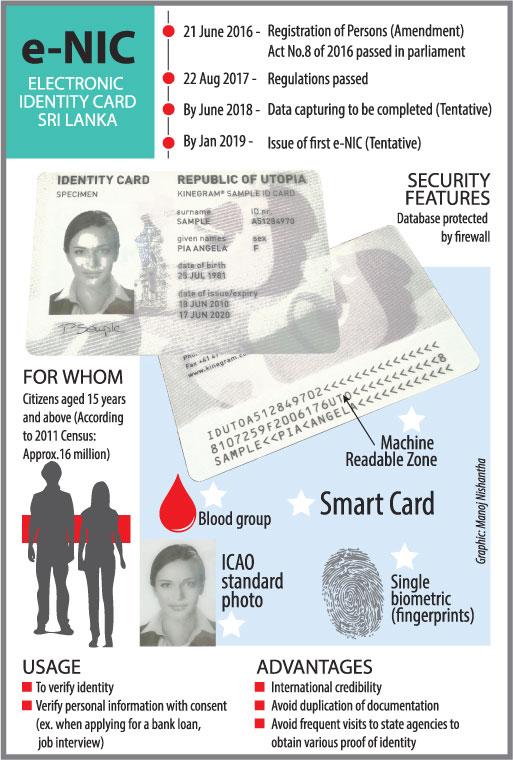
Technically, e-governance delivers many advantages to the citizens. It gives information about government services; helps the exchange of information between the government and citizens, integrates various stand-alone systems and services government-to-citizen, and government-to-business and assists citizens to communicate and transact with the government conveniently.
In the past few years, e-governance has been made more citizen-friendly through modernising its processes. Its ‘successes’ have been highly publicised. Nearly 20 years after its introduction, we might ask ourselves whether it has really made a difference to our overall perception of communicating and transacting with the government.
Development survey
The UN e-government Development Survey is the only global initiative to measure and track how governments fare on the e-governance front. The report ‘looks at how e-government can facilitate integrated policies and services across the three dimensions of sustainable development.’
In 2012, Sri Lanka was in 115th position out of 192 countries. By 2014 it climbed 41 steps and secured 74th position. In that year, Sri Lanka surpassed the Maldives (94) and India (118). However, in 2018, Sri Lanka went 15 notches down coming into 94th position. India rose 22 notches reaching 96th position. A local IT expert commented, “If we continue to fail to sustain our achievements we will before long lag behind in global competition”. What went wrong?
Pakistan’s experience
It is common knowledge that a computer facilitates and speeds up storage, retrieval and processing of data. A computerised Information Technology (IT) system is simply an extension of the human arm. Its sheer speed and convenience often fool us into thinking it to be an autonomous force and a panacea for all economic ills.
Countries around the world are investing more and more in the IT sector to accelerate their economies. There are numerous government branches across the world set up entirely with tech development in mind – Silicon Valleys is built on public funds for the sole purpose of technology expansion. India has two – Bengaluru, and now, Hyderabad.
Technology stocks offer investors a lot of profitability, in fact, the sector offers the highest returns of all ranked market sectors.
That is why Sri Lanka also needs to invest more in technology. According to the United Nations e-government Survey 2018, Pakistan has shown impressive improvements in e-presence and provision of public service online. During 2016-17, Pakistan’s IT exports have grown at a swifter pace than India or Sri Lanka.
Pakistan’s growth rate during 2016-17 was 16%, whereas India’s growth rate was 8% and Sri Lanka’s growth rate was 5% . Pakistan’s share of global IT sales is $2.8 billion, of which $1.6 billion accounts for the country’s exports of software and IT-enabled services. One of the world’s best payment processing solution providers reside in Pakistan.
Pakistan is getting popularity internationally, due to its technology growth. According to the 2017-18 Annual Report, Foreign Direct Investment in Pakistan’s business of Information Technology has escalated to $1.9 billion. A huge share of this investment has been coming from foreign financiers extending from the UAE to Egypt, the US, and China.
Pakistan government’s incentives to the IT industry include tax exemption on IT exports, 100% foreign ownership, 100% repatriation of capital and dividends, a three-year tax exemption for IT start-ups and tax holiday for Venture Capital Funds till June 2024. Sri Lanka can learn a great deal from the Pakistan experience.
Of course, no one can deny that in Sri Lanka, the existing e-governance has produced certain visible benefits to citizens.
However, there are still some areas in which the country can invest to promote its technology sector; for example, systems, procedures, resources, responsiveness, transparency, accountability and, above all, work culture. Unless these are professionally managed simultaneously, e-governance will produce only a mere sizzle without the steak.
Sri Lanka must also position itself as a country with AI capabilities.
AI is still new throughout the world and if Sri Lanka gets a head-start, it can get ahead of the rest of the pack. The advantage is that AI has a massive global opportunity, it doesn’t require a lot of people, only a few master minds. Sri Lanka has enough high-end talent. Therefore, the country has the capability to get a head start in this area.
Start-ups
The availability of high talent also makes Sri Lanka a hot region for Start-Ups. A Start-Up in the IT industry is a tech company working to solve a problem where the solution is not obvious and success is not guaranteed.
With the right amount of Venture Capital coming in, Sri Lanka can unleash, launch and propel the country’s most promising innovative seeds with a clear goal to build new concepts and brands. The Government has a major role to play in meeting Up With this challenge.
R&D investment
It is also time for Sri Lanka to seriously invest in the Research and Development (R&D) sector which is the backbone of a globally competitive, knowledge-driven economy.
Investment in the R&D sector can lead to the development of new products and services driving growth, creating jobs, and improving national welfare.
Unfortunately, Sri Lanka’s expenditure on R&D is the lowest in the region. Her R&D to GDP ratio was a meagre 0.16% and it has not risen much.
Of this only 11% was spent by universities while the rest was spread equally between Government research institutions and businesses. Our industry leaders complain about the lack of entrepreneurial spirit among academics, while the low commercialisation potential of university research are key deterrents to invest in R&D in universities.
The Government must decide what policies would be best for start-ups. For example, giving tax concessions would matter little as most strata would not make profit in the first few years anyway. Getting the mix right will be at the core of Sri Lanka’s growth prospects.
The involvement of the Government in the technology sector will contribute to an increasingly competitive sector, which will, in turn, encourage the development of better products and services resulting in a happier nation.
